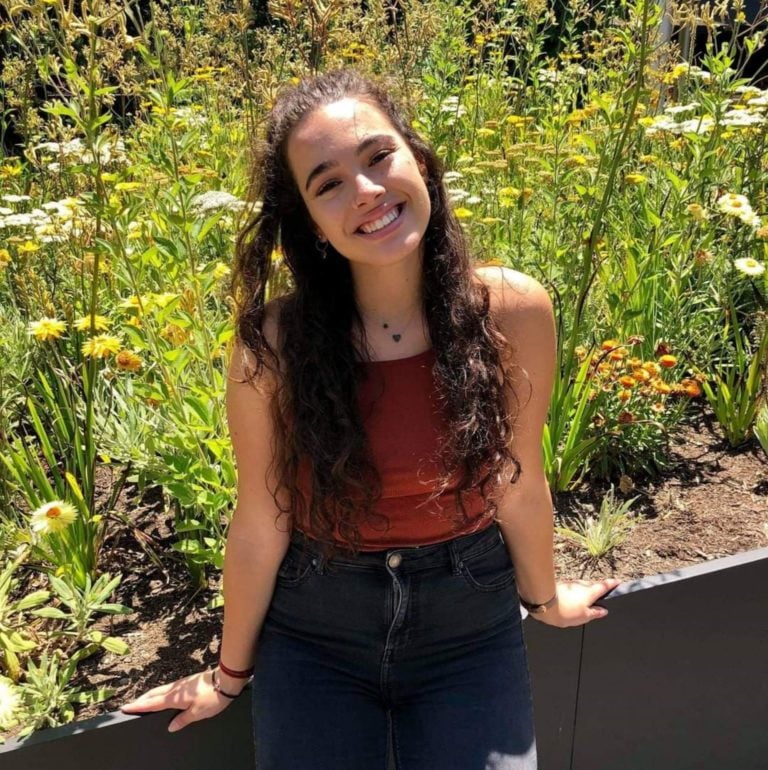The-differences-across-greek-australian-generations

Photos: Supplied/neoskosmos.com
Generational differences are not exclusive to immigrant communities but as Greek-Australians, there are often cultural nuances that those outside of the community may not entirely understand.
With each new generation being born into the world, there are new sets of trends, likes and dislikes and of course new ideas.
As Greek-Australians we often attempt to find a balance and synergy between our family’s heritage and the Australian culture we have grown up in.
Neos Kosmos spoke to the youth of NUGAS about what they feel are the greatest difference across the generations of Greek-Australians.
Maria Psomadelli

Greek immigration to Australia began in the early 1830s, with the peak of it occurring between 1945 and 1982. Many young people had left their homeland during this period to start a new life in what they referred as the ‘lucky country’.
Most of them had only planned a temporary travel, with the dream to return home, realised by a few. Today Australia has one of the biggest Greek populations, other than Greece, with more than half a million Greek people permanently residing across Melbourne and Sydney.
Generations differ, from the way children are raised, to culture and technology. If we were to unwrap some of those, I believe language would be a major one. Greek language is not spoken in homes anymore, most of the parents are not passing on the culture as much and therefore Greek is only spoken by grandparents and during special occasions.
As a person who has recently arrived from Greece, I can identify lots of differences within Greek-Australian families in Australia, children are raised differently, parents have different influence and the Greek heritage is harder to retain.
One of my main experiences that made me realise how different Greek-Australians are, had taken place during my last school year, when I have encountered some students of my age, with Greek background, who during our conversation had confided that their connection to the Greek community had faded a long time ago.
One question that can been raised is how long will those be able to hold on to the knowledge, values and way of life taught by the elders of the family and also how much culture will they be able to transmit to their children.
On the other side, although there is communication sustained between 2nd and 3rd generations, it is important to highlight that we progress within the years, it is usual that needs and demands change. Our grandparents compared to us had less resources and different standards while growing up, it is therefore significant to make sure that there is communication and understanding among all.
Eleni Nzifas

I can only speak from my own experiences throughout my years in Greek clubs and societies as well as within my own family, in other words, I do acknowledge that my opinion is a generalisation.
I have found that the 2nd generation were more highly exposed to Greek culture and identity, with many being forced to speak only Greek at home, to attend many various Greek events. It appears that there was a sense of obligation from the 1st generation bestowed upon the 2nd due to fears of losing Greek identity in and amongst a highly Anglo-Saxon environment, in my opinion, resulting in a few different “types” of 2nd generation.
One is those who later in life had embraced that aspect to their identity, participating beyond their obligation and another whom has embraced the ‘Australian’ identity, often describing themselves as “Australian with Greek parents.” There does appear to be a sort of dichotomy with identity expressed in many different ways. Once it filters to the 3rd generation, I often notice that the level of embracing of Greek culture, identity and heritage is dependent on the attitude of the parents, the educational institutions in which the 3rd generation dwell, as well as their friendship groups. In regards to the language, there appeared to be less of a necessity and push for the 3rd generation to learn but that does not mean that there hasn’t been an individual effort either.
Many did attend Greek school due to their parent’s push, many attended for a short time and others not at all. If you attend one Greek class at La Trobe (and I’m sure at many other organisations), you will see a group filled with mainly 3rd generation, all with varying levels of exposure to the language, going out of their way as adults to learn the language. I can only speak from more of the 3rd generation perspective in regards to feeling heard by their elders and for the majority I would say that there is an obstacle with a resistance of evolution within the communities.
This clash between generations is influenced by many things, including, the effect of migration with a threat of loss of culture, that struggle to maintain, preserve and sustain outlets and places of familiarity that the 1st generation encountered. In saying that, 3rd generations may not particularly embrace their identity in the same ways as the 1st but that does not reflect a lack of care or willingness, it is simply an evolution of diasporic identity and is something to be valued, after all we are the future.
S:Neoskosmos.com










Σχόλια Facebook